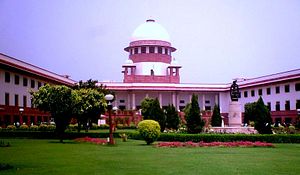Does history repeat itself? This is the debate raging among political analysts in India today. They are discussing whether the Congress Party can conjure the same magic it did in the late 1970s, when its leadership used a court case to resurrect the party after a humiliating defeat in the 1977 general elections.
History has presented the party with a similar situation today. The opposition Congress Party is still reeling after its crushing defeat in the 2014 general elections. Last week, the Party President Sonia Gandhi and Vice-President Rahul Gandhi (her son) had to appear before a local court in Delhi seeking bail for a case related to the restructuring and ownership of the organization’s mouthpiece, the National Herald. A controversial leader of the ruling Bharatiya Janata Party (BJP), Subramanian Swamy, filed a case against the Congress leaders, alleging misappropriation of the properties of the National Herald through a private company.
After the closure of the paper in 2008, the Congress leadership formed a separate company to handle the debts and properties of the Associated Journals Ltd (AJL). Swamy accuses the Gandhi family of appropriating assets worth $300 million through the AJL, which was formed by Jawaharlal Nehru, Rahul Gandhi’s grandfather and India’s first prime minister, in 1938.
The Congress Party denies any wrongdoing. It says that the new company had been set up to manage the defunct newspaper’s financial assets and that no individual received any financial benefit. Besides, the issue relates to Congress’ internal adjustment and does not impact anyone outside the party.
The case has now become more of a political issue than a legal one. During the court appearances of the two Gandhis, thousands of party workers all across India took to the streets to express solidarity with the Congress leadership. Sonia Gandhi has accused the BJP leader and India’s prime minister, Narendra Modi, of a political vendetta.
The court case is giving the Congress Party an opportunity to galvanize its party cadres, who have been lying low since the party’s worst-ever performance in the 2014 general elections. In this election, the Congress was only able to win 44 seats in the Indian Parliament, out of a total of 545, a historic low for the group, which has ruled the country for the majority of India’s independence.
What lends credence to the opposition party’s position is Swamy’s history. The maverick politician has made a point of targeting the Nehru-Gandhi clan. He never misses an opportunity to use derogatory terms about the Gandhi family. Recently, he accused Rahul Gandhi of being a British citizen, citing a document from a company with which Rahul Gandhi was associated in the past.
No one can deny the fact that the fortunes of the Congress Party are very much linked with India’s first political dynasty. The more discredited the party’s first family becomes, the less appeal it will have with the masses.
According to Harish Khare, editor in-chief of the English daily The Tribune, “There is an entrenched group of intelligent, sharp, determined men and women who vindictively feel that time has come to show the Nehru-Gandhis their place.” He says that there is an ongoing “larger war” between the BJP’s affiliate group, the Rashtriya Swayamsevak Sangh, and the Congress Party.
“There is a fifty years old, interminable standoff with the Nehrus and the Congress party… It is painfully obvious that Jawaharlal Nehru had single-handedly mobilized Indian public opinion against a Hindu right-wing takeover shortly after independence. Now its various affiliated fronts are trying to earn respectability for themselves by wanting to delegitimize the Congress Party and the Nehru-Gandhis.”
The Congress Party is using the current court case to revive the memory of 1977, when then-Prime Minister Indira Gandhi was arrested on charge of abusing of power. She used the case to galvanize the party and revive sympathy for the organization among the masses. But 2015 is not 1977. Although the party cadres are now more enthused than before, a case of financial mismanagement will not be enough to lead the party to a revival, à la 1977.
The Congress Party is a much weaker organization now than it was four decades ago. It needs strong regional leaders, clear strategic thinking, and, above all, an idea to capture the imagination of the people. Invoking its past glory will not be enough to recapture the political power it once enjoyed. To make itself more relevant in the existing Indian political ecosystem, the Congress Party will have to present a new narrative to the nation. Its leadership will have to connect with the aspirations of India and democratize the party structure so that it reflects the changing country.

































